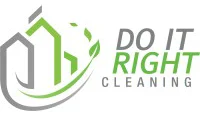Navigating the tight and treacherous confines beneath the earth’s surface or within enclosed industrial structures is a daunting task.
The practice of confined space cleaning—a vital component of many industrial and public works—introduces significant risks that can only be mitigated through specialized training and expertise.
In this comprehensive exploration, we will delve into why confined space cleaning is both an art and a science that necessitates specialized training and knowledge at every stage.
Understanding the Complexity of Confined Space Cleaning
The term ‘confined space’ is expansive, encapsulating not just the compact dimensions of the work area but also considerations that include the type and frequency of hazards encountered.
These can range from limited entry and exit points, inadequate ventilation, exposure to toxic substances, and even immobilizing spatial constraints.
Navigating Regulatory Compliance
In an ever-evolving landscape of health and safety standards, compliance is not a mere formality, but a compass to safeguard lives. Industries with confined spaces must adhere to an array of regulations, such as OSHA’s 29 CFR 1910.146, to ensure that workers and contractors are protected from the unique hazards these spaces present.
The Fourfold Dominance of Hazards
The lion’s share of confined space fatalities can be attributed to four core hazards: asphyxiation, engulfment, hazardous atmospheric conditions, and physical hazards, including moving machinery. Each hazard type demands a tailored approach to training, often involving the slew of in-depth certification programs available.
The Specialist’s Toolkit: Training Methods and Tools
The path to proficiency in confined space cleaning is paved with a varied and interactive toolkit of training methods and tools. These not only instill theoretical knowledge but also provide practical, hands-on experience in simulated environments to prepare specialists for the unforgiving reality they will face.
Simulations and Scenario-Based Learning
Simulated environments, from virtual reality scenarios to mock confined spaces, form the backbone of learning for specialists. These immersive experiences help in developing critical thinking, decision-making skills, and muscle memory responses to emergencies.
Technology Integration for Real-World Readiness
The modern confined space cleaning specialist benefits from the integration of technology, from gas detection instruments to entry permit systems. Familiarization with these tools during training ensures professionals are adept at operating advanced safety equipment when it counts most.
Scaling Knowledge and Expertise Across the Workforce
The need for a well-trained workforce in confined space cleaning extends not only to the individual specialist but to entire teams and, indeed, the organizations they serve. Knowledge transfer and continuing education programs are pivotal in maintaining a vigilant, high-functioning workforce.
Implementing Comprehensive Certification Programs
Certification programs, which are tailored to the specific types of confined spaces encountered, are crucial in the standardization of training across the industry. As the qualification spectrum varies widely, certification dispels ambiguity and ensures uniform knowledge levels.
Encouraging a Culture of Continuous Learning
In a field as dynamic as confined space cleaning, there is no substitute for an inquisitive and adaptive mindset. A culture of continuous learning, spurred by engaging workshops, conferences, and site visits, is instrumental in staying abreast of evolving best practices and innovations.
Regional and Sectoral Considerations
Training in confined space cleaning is not one-size-fits-all. Regional regulations, cultural nuances, and the nuances of specific industry sectors further dictate the depth and breadth of training that is necessary to ensure safe and effective operation.
Customizing Training Programs for Regional Regulations
Global entities and those working across borders face the challenge of reconciling different regulatory frameworks. Customizing training materials to reflect regional variations in confined space safety regulations is essential to ensuring compliance and worker safety.
Sector-Specific Specialization
The confined space cleaning requirements of, say, the municipal wastewater sector, differ significantly from those of the oil and gas industry. Specialized training programs that mirror the unique hazards and operating conditions of each sector are essential for a proficient, specialist workforce.
Best Practices and Industry Benchmarks
In an arena where precise expertise can spell the difference between life and death, it’s crucial to identify and emulate best practices and industry benchmarks that have been proven effective through experience and time.
Learning from Incident Case Studies
The careful study of incidents—what went wrong and, critically, why—serves as a valuable lesson in risk assessment and management. These real-world scenarios serve to tighten training protocols and emphasize the importance of vigilance.
Industry Collaboration and Peers Mentoring
Establishing partnerships with experienced industry leaders can be invaluable. Peer mentoring provides a network of support and knowledge exchange that can lift all members of the confined space cleaning community to higher levels of proficiency.
Conclusion: The Indispensable Role of Specialized Training in Confined Space Cleaning
Confined space cleaning is a precarious endeavor that demands more than general knowledge and generic safety precautions. Specialized training is the thread that runs through the entire fabric of this critical discipline, from understanding the unique risks to implementing cutting-edge safety measures.
In the absence of comprehensive training, professionals in this domain are at greater risk, and, by extension, so are the organizations that rely on their services.
By prioritizing continuous learning and the adoption of industry best practices, we can ensure that confined space cleaning remains a valuable but safe operation.
About Us
Are you looking for a reliable and reputable cleaning company in Christiansburg to ensure your property has a hygienic and clean environment without compromising on safety? Look no further than Do it Right Cleaning.
We have been in the industry for over 10 years and are dedicated to providing the best cleaning services to our clients all across the I-81 corridor from Wytheville to Roanoke.
Our services include residential cleaning, commercial cleaning, industrial cleaning, and janitorial services. Remember, when it comes to safety and cleanliness, we don’t just clean it, we do it right!
You can fill out our contact form to know more. Request a quote here to get started!
